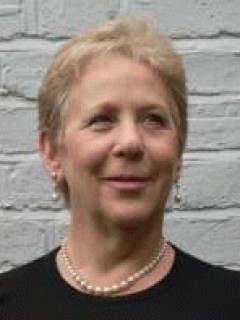It’s funny how things work out. A course that was meant to be a useful stopgap has now turned into one of the most in-demand on AQR’s books. It has also become a rite of passage for newcomers to the industry - an interesting thought as accreditation emerges as a potential hot potato.
"Back in the stone age AQRP (as it was then) used to run a residential foundation course," says John Rose. "It quickly became established as a ground breaking course in qualitative research."
Then along came the recession of the 80s, budgets were hit, and suddenly a big money spinner in a tight financial year ended up with only four bookings. "It got to the point where we had to confirm the hotel or pull out," says John.
In 1992 Alastair Burns was asked to look at this area and, after discussion, the Committee decided to launch a series of short modules (initially aimed at clients) for a course to be held the following January. By the summer of that year it was decided not to restrict it to clients, so the course - which took place in January 1993 - took the shape of ten weekly seminars, run by Andrew Irving.
He managed it for three consecutive years until he called time, whereupon John, Michael Herbert and Ann Whalley took another look at the format. After investigating the options, they cooked up the Non-Residential Foundation Course, to be run on five consecutive Fridays. This is the version which has run since 1996.
Initially it was yet another experiment, but it has grown and prospered. Three years ago Geoff Bayley took over the reins, aided and abetted for the next two by Caroline Snell and this year by Lucy Peile.
"We made quite a few changes at the beginning," says Caroline. "We refined the case studies each year and changed the team in terms of who was attending as speakers."
The roster was reviewed so as to get a mix of new and established tutors and speakers, who were predominantly in their thirties, so nearer to delegates in age, as well as provide them with access to industry ‘gurus’.
The course itself became more flexible, so that timely issues could be incorporated in the schedule. One year this meant adding a section on Data Protection and the MRS Code of Conduct. Emails, meanwhile, mean that discussion guides, etc., can now be bounced around not just between individual syndicate group members, but also with their tutors thus - in theory - leading to more polished work when they return to the class.
So is the course still delivering the goods for those who attend? A straw poll of delegates would seem to say yes. Mark Mallabone of Unilever Bestfoods had done groups in a previous role in the public sector, but he was still appreciative of the learnings it provided. If nothing else, it challenged him and made him rethink his approach.
"I had thought I was relatively competent in terms of running groups but it highlighted the sets of skills you needed, which were different from the ones that I had," he says. "It was more to do with taking a back seat and being less intrusive, but simultaneously in complete control," he says. "The less you speak, the more they speak, the better."
Rachael Smith from Synovate has been a quantitative researcher for around four and a half years, so again no novice, and also found the moderating section a challenge.
"I really enjoyed it, but it was a bit daunting," she says. "At least we got the chance to try it out in a neutral environment."
What shocked her was how difficult it was to be articulate - although she hopes this can be blamed partly on the transcription. "I was lucky, though," she adds. "I had a good group to moderate, but listening to the feedback from other groups you could also learn from their mistakes."
Nowadays the Residential Foundation Course is back on the agenda. It made its comeback in 1998, mainly in response to the needs of overseas delegates and those who were unable to be away from the office for five full days over five weeks.
There is little to choose between the two in terms of pricing, but the accelerated teaching of the residential version, combined with the late nights, means that delegates and tutors need to start taking their vitamins well in advance.


